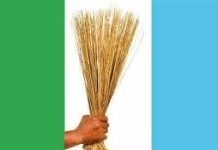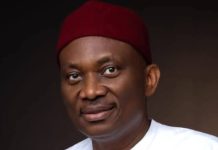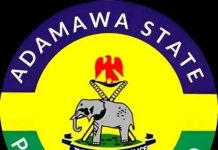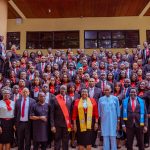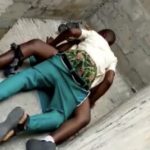Efforts to resolve the lingering political crisis in Rivers State have hit a stalemate, as attempts to reconcile Governor Siminalayi Fubara and the Minister of the Federal Capital Territory, Nyesom Wike, remain fruitless—two weeks after the National Assembly proposed a peace committee.
The impasse persists despite an earlier intervention by President Bola Tinubu, who, in March, declared a state of emergency in the state amid escalating tensions.
The proclamation led to the six-month suspension of Governor Fubara, his deputy Ngozi Odu, and all members of the Rivers State House of Assembly.
Retired Vice-Admiral Ibok Ibas was appointed as Sole Administrator to oversee governance during the suspension period.
While the National Assembly swiftly ratified the President’s decision, both chambers recommended the formation of a mediation committee to bridge the widening rift between the governor and his estranged political benefactor.
However, the proposed initiative has failed to gain traction, with no concrete steps taken toward kickstarting the peace process.
Sources in Port Harcourt attribute the delay to internal divisions among prominent Ijaw and Rivers leaders, many of whom are accused of taking partisan positions during the crisis.
“Those expected to guide the state toward reconciliation have unfortunately chosen sides, rendering them ineffective as neutral mediators,” a source close to the developments revealed.
According to the insider, several Ijaw leaders openly backed Governor Fubara, marginalizing Wike in the process and complicating reconciliation efforts.
Former President Goodluck Jonathan and the Ijaw National Congress (INC) were specifically criticized for perceived partisanship.
“Jonathan, who many had hoped would champion peace efforts, appeared to align with Fubara’s camp,” the source noted.
“Likewise, Prof. Benjamin Okaba’s leadership of the INC has failed to maintain neutrality, deepening distrust among stakeholders.”
The source further lamented the polarization of the state’s elder statesmen, stating that their credibility as peace brokers has been severely eroded.
President of the Ijaw Youths Council (IYC) Worldwide, Jonathan Lokpobiri, also voiced concerns over the handling of the crisis by key Ijaw figures, warning against emotional and ethnically charged rhetoric.
“With all sense of responsibility, I believe this crisis could have been averted if we had applied wisdom and restraint,” Lokpobiri said.
“Instead, inflammatory statements created unnecessary tension, drawing the region into a conflict that could—and should—have been prevented.”
He emphasized the importance of strategic thinking over aggressive posturing, urging Niger Delta leaders to adopt a more measured approach in resolving political disputes.
“Sometimes, wisdom is more powerful than the weapons we boast of. If we had heeded early warnings and resolved this internally, we wouldn’t be facing this national embarrassment,” he added.
Meanwhile, the Movement for Izon Ethnic Nationality Development (MOSIEND), through its president Kennedy Tonjo-West, declared its readiness to spearhead reconciliation efforts.
“MOSIEND has maintained a neutral stance from the onset, and we are now initiating consultations aimed at restoring peace. Time is of the essence,” Tonjo-West stated.
Despite previous political alignment, the relationship between Wike and Fubara has deteriorated since the 2023 general elections.
Governor Fubara is reported to have returned to his private residence in Port Harcourt, while most of the suspended lawmakers, largely Wike loyalists, are said to be outside the country on vacation.
As tensions linger and institutional efforts falter, Rivers State remains mired in uncertainty, with reconciliation appearing increasingly elusive.
Credit: Politics except headline


